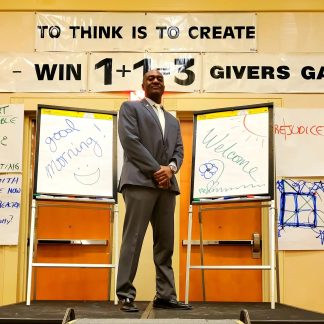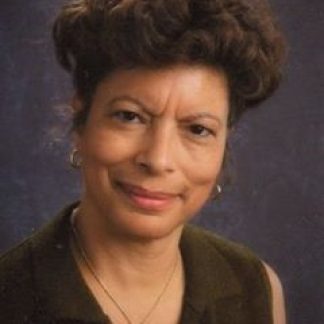What exactly is your role in education? And how long have you been doing it for?
My official title is the Executive Director for Diversity Equity and Inclusion. I’ve been in higher education for almost 30 years, starting in enrollment management in Financial Aid and Advising. In 2007, I got into diversity work exclusively.
As the Executive Director for Diversity Equity and Inclusion, I work with the college and set the strategic agenda for diversity equity and inclusion. Diversity means valuing differences, and in terms of equity, we have historically had people who have been underserved or marginalized than ever before, so I work with the campus stakeholders to figure out how we can close those equity gaps.
For example, when it comes to retention, success, and completion rates, our African-American, Hispanic, and Latinx students tend to be at a lower level compared to the total student population. My job is to work with campus stakeholders to find innovative ways to try to close those gaps. I address their teaching practices and help them to embrace culturally responsive pedagogy, (i.e. teaching) and provide support services to underrepresented populations of low-income, first generation students–and things of that nature.
I also work to provide inclusion by looking at our campus climate and making sure that we’re promoting a safe environment where everybody has a sense of belonging. That means addressing issues of things like race, gender, and homophobia. When students are inside the classroom, workspace, or generally on campus, they don’t need to feel like they can’t embrace who they are.
We do a critical analysis of what’s happening on our campus, and what we need to do to change it. We attempt to change deep rooted perceptions through training, measuring our campus climate, doing surveys, and having conversations with people.
Why do you think what you do is important?
We live in an increasingly more diverse and global world, so I believe people have to confront that reality. We are not immune to some of the challenges that you see in the media today, like Black Lives Matter and LBGTQ+ rights, so we need to prepare our students for that world that they’re going to go into when they go into the workforce, or transfer to a four-year institution.
It’s our responsibility to start tackling those issues, and to give students a platform on campus where we can have these deep, courageous conversations about those issues that impact our society.
What do you love most about what you do?
The community relations, building relationships, and meeting people from different backgrounds. My approach is that I can learn as much from other people as I hope they will learn from me. When you build those relationships, you foster growth and understanding–which will lead to a better campus and better community.
That’s what truly makes me get up everyday and do this job.
What was the best advice you received about your impact on education, and diversity?
That’s a good question. When I first started in my career, I didn’t go into it thinking that Higher Education would be my career, and I thought of it as a job.
I was fresh out of college, 22 years old and I had myself a little bachelor pad. Basically, I was doing something special, and it was just a job to make money. As I progressed, people told me, “Hey Keith, you have to take this seriously if you want to grow in it. You have to train and learn the politics so that you can move up that ladder of success.”
I didn’t have somebody to tell me initially, but I learned very quickly to treat this as a career, and not just as a job.
I learned to understand the trade, and over time, I started to join professional organizations. I was just elected as the President of the Regional Association of Diversity Officers, and still, I continued to go to training and presentations because I am a student of my craft.
You’re never too old to learn your profession, and if you get to the point where you think you know everything, you probably need to ask yourself if it really in your best interest to continue to do it. There’s always more to learn, especially in the world of Diversity Equity. Things are changing so constantly that it requires you to continuously train and educate yourself.
What advice do you have for any younger generations?
I would say to not allow other people to define what success means for you.
For example, if I ask you, “Who is more successful, me or Barack Obama?” The average person is going to say Barack Obama. He’s the president, he’s married to Michelle, he’s a millionaire, a best selling author, and more! Still, I can challenge that opinion because I’ve never wanted to be president of the United States of America, and as a matter of fact, I didn’t want to be president anything! Why should his success be the measurement for my success?
Define what success is for you, and then pursue that and be proud of your achievements! Don’t always compare yourself to what other people are doing.
I also tell the younger generation to know your worth. If you’re if you’re qualified and you’re ready, then you’re worthy. Don’t let other people tell you that you’re not because that belief will try to prevent you from achieving your dreams.
I always bring up Anita Baker and J.K. Rowling. Anita got told that she would never make it because she didn’t have “star quality.” Just imagine if she would’ve listened to that person! J.K. Rowling’s book, Harry Potter, was rejected 12 times by publishers before she got it!
Know your vision for life, and your passion for what you do. Get better with practice and believe you’re not going to fail, even if sometimes you make some mistakes. Know your calling, and don’t let anyone else tell you otherwise.
Written by Talisa Caldwell
——————
Self submission
Keith currently serves as the inaugural Executive Director for Diversity, Equity and Inclusion with Pikes Peak Community College in Colorado Springs, CO, a recipient of the Higher Education Excellence in Diversity (HEED) Award in 2018 and 2019. He currently serves as the Vice President for the Colorado Association of Diversity Officers in Higher Education (CoADOHE). Keith is a founding member of the Colorado Community College System (CCCS) Equity and Inclusion Council. He received his ADA Coordinator Training Certification from the University of Missouri and the Great Plains ADA Center in April of 2016. He serves as a facilitator for the “Food for Thought” Colorado Springs Diversity Dialogue Series, a film reviewer for Rocky Mountain Women Films, a life member with the Iota Omicron Lambda Alumni Chapter of Alpha Phi Alpha, Fraternity, Inc., and a volunteer for the Colorado Springs African-American Youth Leadership Conference. He recently founded Joshua Bee, LLC Consulting to provide training, consulting, and lectures/presentations on a variety of topics pertaining to diversity, equity and inclusion.








